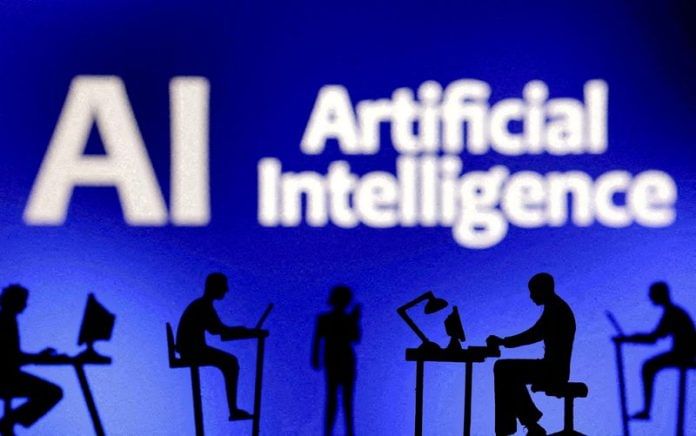By Jody Godoy
(Reuters) -The U.S. Justice Department and the Federal Trade Commission have reached a deal that allows them to proceed with antitrust investigations into the dominant roles that Microsoft, OpenAI and Nvidia play in the artificial intelligence industry, according to a source familiar with the matter.
Under the deal, the U.S. Department of Justice will take the lead in investigating whether Nvidia violated antitrust laws, while the FTC will examine the conduct of OpenAI and Microsoft. While OpenAI’s parent is a nonprofit, Microsoft has invested $13 billion in a for-profit subsidiary, for what would be a 49% stake.
The Microsoft-OpenAI partnership is also under informal scrutiny in other regions.
The regulators struck the deal over the past week and it is expected to be completed in the coming days, the person said.
The FTC is also looking into Microsoft’s $650 million deal with AI startup Inflection AI, a person familiar with the matter said.
The probe was first reported by the Wall Street Journal and the regulators’ agreement by the New York Times.
OpenAI and Nvidia did not immediately reply to requests for comment on Thursday. Microsoft said it has complied with its legal obligations.
The moves signal growing regulatory scrutiny into the AI industry. In January, the FTC ordered OpenAI, Microsoft, Alphabet Amazon and Anthropic to provide information on recent investments and partnerships involving generative AI companies and cloud service providers.
In July last year, the FTC opened an investigation into OpenAI on claims it had run afoul of consumer protection laws by putting personal reputations and data at risk.
Last week, U.S. antitrust chief Jonathan Kanter referred to “structures and trends in AI that should give us pause,” at an AI conference, adding that the technology relies on massive amounts of data and computing power, which can give already-dominant firms a substantial advantage.
(Reporting by Gnaneshwar Rajan in Bengaluru; Editing by Mrigank Dhaniwala and Chizu Nomiyama)
Disclaimer: This report is auto generated from the Reuters news service. ThePrint holds no responsibilty for its content.





